214 (→ 7 * 30 + 4 → 2-14,
February 14):
... The author of the
Book of Enoch in his
treatise on astronomy and the calendar also reckoned a year to
be 364 days, though he pronounced a curse on all who did not
reckon a month to be 30 days long
...
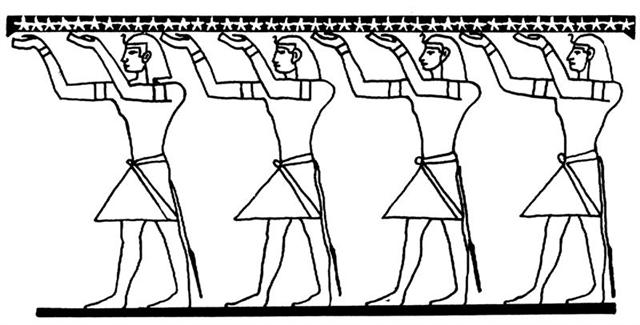
Once again. The First Point of the Venus
in the pentagram of AD 1900 was at Ga2-13 (→ 213
= 3 * 71), and 364 + 220 = 584 days later was the 2nd Point at
Gb2-8 (263) → 213 + 50 (→ Venus
invisible before returning as Evening Star).
And the true
measure for the pair of periods when Venus shone brightly in the night sky was
thus 263 consecutive nights
→ Gb2-8 (263):
|
 |
*220 |
 |
|
Ga2-13 (43) |
Gb2-8 (263 →
214 + 49) |
|
July 8 AD 1900 (187) |
Febr 14
AD 1902 (45) |
|
July
6 (*107) |
Febr 11 (*327) |
|
τ
Gemini |
Castra (ε
Capricorni) |

From July 8 AD 1900 (187) to February 14 (45) AD 1902 there
should be around 2 * 365 + 45 - 189 = 586 right ascension
nights. From July 6 AD 1900 (185) to February 11 (42) AD
1902 there should be around 2 * 365 + 42 - 185 = 587 right
ascension nights.
From July 6 AD 1900 (*107) to February 11
(365 + 42 = 407, *327) there should be *364 + *327 - *107 =
*584 right ascension nights - i.e. exactly as the synodoc
cycle of Venus. *220 = *584 - *364.
|
Phase
of Venus |
Observed periods |
Periods in the Mayan 'map' |
Difference |
|
Evening star |
263 |
250 |
- 13 |
|
Black |
8 |
8 |
0 |
|
Morning star |
263 |
236
= 8 * 29½ |
- 27 |
|
Black |
50 |
27 +
50
+ 13 = 90 |
+ 40 |
|
Sum |
584 |
584 |
0 |
 |
A rising Fish seems to illustrate a star visible late at
night in the morning sky, and e.g. at Gb6-26 was a Rogo
figure where in my assumed era for rongorongo the Sun was
rising at
Sirrah (the Navel of the Horse) in March 21.
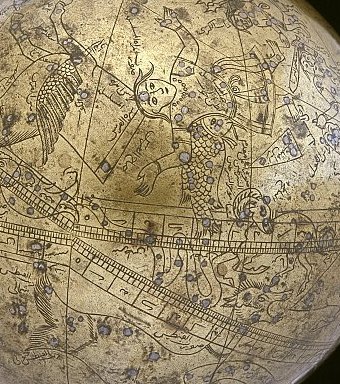
... Whatever there is that might be is
simply not there: only the pooled water, only the calm sea,
only it alone is pooled. Whatever might be is simply not
there: only murmurs, ripples, in the dark, in the night.
Only the Maker, Modeler alone, Sovereign Plumed Serpent, the
Bearers, Begetters are in the water,
a glittering light. They are
there, they are enclosed in quetzal feathers, in blue-green.
Thus the name, 'Plumed Serpent'. They are great knowers,
great thinkers in their very being ...
... The principal word for 'fish' in most
Dravidian languages is min, which has an ancient
homophone meaning 'star', both probably derivatives of the
root
min 'to glitter' ...
|
MAY 2 (*42) |
3 (123, 488) |
4 |
5 (365 + 125 = 490) |
 |
 |
 |
 |
|
Gb6-25
(229 + 178) |
Gb6-26
(408 → 40 * 8 = 320) |
Gb6-27 (360 / 2) |
Gb6-28 (45 + 136) |
 |
 |
 |
 |
|
Ga2-12 (42) |
Ga2-13 (408 - 365) |
Ga2-14 |
Ga2-15
(45) |
|
PLACE OF THE SUN: |
|
7h (106.5)
No star listed (106) |
WEZEN (Weight) =
δ
Canis Majoris
(107.1),
τ Gemini
(107.7),
δ
Monocerotis (107.9)
July 8 AD 1900 (187)
VENUS (*107.4)
*66.0 = *107.4 - *41.4 |
No star listed (108) |
λ Gemini (109.4),
WASAT
(Middle) = δ
Gemini
(109.8)
*68.0 = *109.4 - *41.4 |
 |
|
July 5 (186 = 106 + 80) |
6 (*107) |
7 |
July
8 (187) |
|
°July 1 (182) |
2 |
3 (*104) |
4 |
|
'June 8 (159 = 186 - 27) |
9 (*80) |
10 |
11 |
|
"May 25
(12 * 12 = 186 - 41) |
26 |
27 |
28 (*68) |
|
THE NAKSHATRA
VIEW: |
|
OCT 31 |
NOV 1 (123 + 182) |
2 (300 + 6) |
3 (*227) |
|
Al Na'ām-18 (Ostriches) /
Uttara Ashadha-21 (Elephant tusk, small bed)
NUNKI
= σ Sagittarii (288.4),
ζ Cor. Austr. (288.5),
MANUBRIUM = ο Sagittarii
(288.8), ζ Aquilae (288.9)
*247.0 = *288.4 - *41.4
|
19h (289.2)
λ
Aquilae (Ant.) (289.1),
γ
Cor. Austr (289.3),
τ
Sagittarii (289.4),
ι
Lyrae (289.5),
δ
Cor.
Austr. (289.8)
*248.0 = *289.4 - *41.4 |
Al Baldah-19 (City)
AL BALDAH = π Sagittarii,
ALPHEKKA (Dish)
MERIDIANA = α Cor. Austr.
(290.1), β Cor. Austr. (290.2) |
ALADFAR (The Talons) = η Lyrae
(291.1),
NODUS II = δ Draconis
(291.5), ψ Sagittarii (291.6), τ
Draconis (291.7), θ Lyrae
(291.8) |
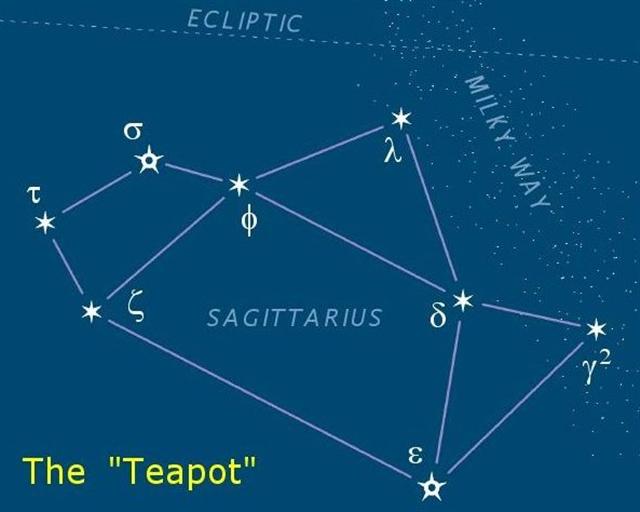 |
|
Jan 3 (368) |
4 |
5 (*290) |
6 |
|
°Dec 30 (364) |
31 (*285) |
°Jan 1 |
2 |
|
'Dec 7 |
8 |
9 (*263) |
10 (344) |
|
"Nov 23 |
24 |
25 (*249) |
26 (330) |
 |
 |
 |
 |
|
Ga8-21 |
Ga8-22 |
Ga8-23 |
Ga8-24 (227 → 314 → π) |
The design of Gb2-8 (263) reminds me of
the
kava fellow who was regenerating
after having
fallen on his face, who
grew out of his ashes like the Phoenix:
... During the second stage (90 days),
Venus goes through its last
27 days
(one sidereal moon) as the morning star,
disappears for 50 days, and runs through
its first 13 days as the evening star
...
 |
 |
 |
 |
 |
|
Gb2-6 (9 * 29) |
Gb2-7 →
27 |
Gb2-8 |
Gb2-9 (35) |
Gb2-10 (265) |
|
PLACE OF THE SUN |
BUNDA (Foundation)
/ KAKKAB
NAMMAΧ (Star of Mighty Destiny)
... β and ξ also
constituted the Persian lunar station Bunda
and the similar Coptic Upuineuti, the
Foundation; but β alone marked the sieu Heu,
Hiu, or Hü, Void, anciently Ko,
the central one of the seven sieu which, taken
together, were known as Heung Wu, the
Black Warrior, in the northern quarter of the
sky. It is found in Hindu lists as Kalpeny,
of unknown signification. On the Euphrates it
was Kakkab Nammaχ, the Star of Mighty
Destiny, that may have given origin to the title
of the manzil [Al Sa'd al Su'ud], as well
as to the astrologers' name for it - Fortuna
Fortunarum. Al Firuzabadi of Khorasan,
editor of Al Kāmūs, the great Arabic
dictionary of the 14th century, called some of
the smaller stars below this Al Au'ā, the
plural of Nau', a Star, but without
explanation, and they certainly are
inconspicious ...
|
|
Al Sa'd al Su'ud-22 (Luckiest of the Lucky)
/
Emptiness-11 (Rat)
TSIN = 36 Capricorni
(325.2),
ALPHIRK (The Flock) =
β
Cephei
(325.7),
SADALSUD =
β
Aquarii,
ξ
Gruis (325.9)
March
14 AD 2024 (Π) MARS |
No star listed (326) |
CASTRA =
ε
Capricorni
(327.2),
BUNDA (Foundation) =
ξ
Aquarii
(327.5)
SIRIUS (α Canis Majoris
Febr 14
AD 1902 (45)
VENUS (*327.7) |
Mahar sha hi-na
Shahū-26 (Western One in the Tail of the Goat)
NASHIRA
(Fortunate One) =
γ
Capricorni
(328.0),
ν
Oct. (328.3),
AZELFAFAGE (Tail of the Hen) =
π¹
Cygni,
κ
Capricorni (328.7) |
Arkat sha hi-na
Shahū-27 (Eastern One in the Tail of the Goat)
ENIF (The Nose) =
ε
Pegasi, ERAKIS =
μ
Cephei
(329.2),
46 CAPRICORNI, JIH (the Sun) =
κ
Pegasi
(329.3),
ι Piscis Austrini (329.4),
λ
Capricorni
(329.6),
ν
Cephei (329.7),
DENEB
ALGIEDI
=
δ
Capricorni
(329.8)
*288.0 = *329.4 - *41.4 |
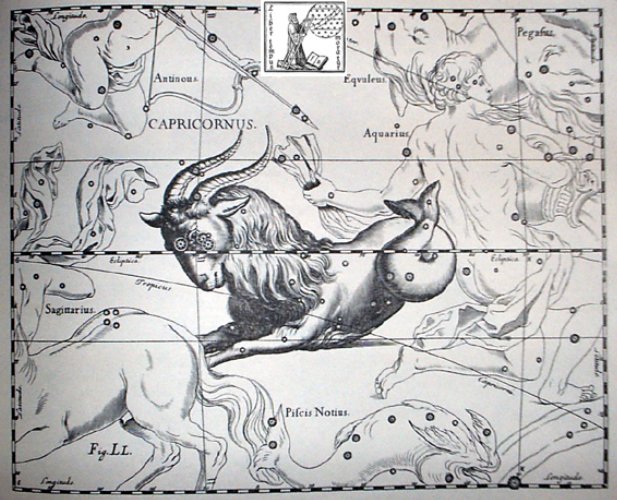
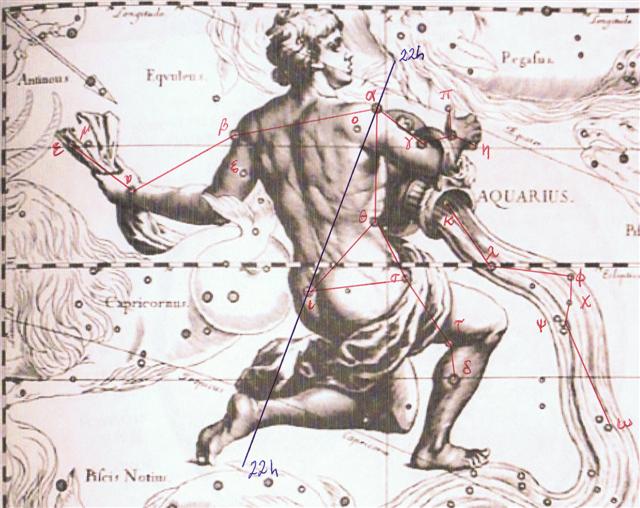 |
|
Febr 9 (40) |
10 |
11 |
12 (408) |
13 (345 + 64) |
|
°Febr 5 (36) |
6 |
7 |
8 (*324) |
9 (40) |
|
'Jan 13 (378) |
14 |
15 (*300) |
16 |
17 |
|
"Dec 30 (364) |
31 |
"Jan 1 |
2 |
3
(368, *288) |
|
DEC 7 (11 * 31 =
341) |
8 |
9 |
10 |
11 (345) |
|
THE NAKSHATRA
VIEW: |
|
Al Tarf-7 (The End)
ψ
Velorum (143.3),
ALTERF =
λ
Leonis,
τ²
Hydrae (143.4),
ξ
Leonis (143.5)
*102.0 = *143.4 - *41.4 |
A
Hydrae
(144.1)
WEGA (α Lyrae) |
Creation of our present world
UKDAH (Knot) =
ι
Hydrae (145.4),
κ
Hydrae (145.5),
SUBRA =
ο
Leonis
(145.8)
ALPHEKKA MERIDIANA
*104.0 = *145.4 - *41.4 |
5 Imix 9 Kumk'u
Rishu A.-13 (Head of
the Lion)
ψ
Leonis (146.4),
RAS
ELASET AUSTRALIS = ε Leonis
(146.6)
*105.0 = *146.4 - *41.4 |
VATHORZ PRIOR = υ Carinae
(147.9) |
|
UKDAH (THE KNOT)
... σ,
4.6, was Ulug Beg's
Al Minhar al
Shujā', the Snake's Nose. τ¹,
4.9, flushed white, and τ²,
4.6, lilac, with ι and the
5th magnitude A, form the curve in the neck,
Ptolemy's Καμπή; but
Kazwini knew them as Ukdah, the Knot ... |
|
Aug 11 |
12 |
13 (225) |
14 |
15 (227) |
|
"July 1 |
2 |
3 (*104) |
4 |
5 |
|
JUNE 8 |
9 |
10 (161) |
11 |
12 |
 |
 |
 |
 |
 |
|
Ga3-20 → Dramasa |
Ga3-21 |
Ga3-22 |
Ga3-23 |
Ga3-24 |

... Midsummer is the flowering
season of the oak, which is the tree of endurance
and triumph, and like the ash is said to 'court the
lightning flash'. Its roots are believed to extend
as deep underground as its branches rise in the air
- Virgil mentions this - which makes it emblematic
of a god whose law runs both in Heaven and in the
Underworld ... The month, which takes its name from
Juppiter the oak-god, begins on June 10th and
ends of July 7th. Midway comes St. John's Day, June
24th, the day on which the oak-king was
sacrificially burned alive. The Celtic year was
divided into two halves with the second half
beginning in July, apparently after a seven-day
wake, or funeral feast, in the oak-king's honour ...
 |
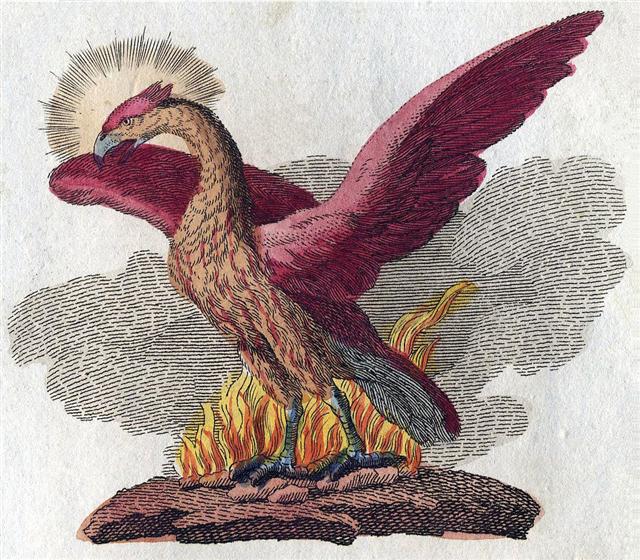
|





















